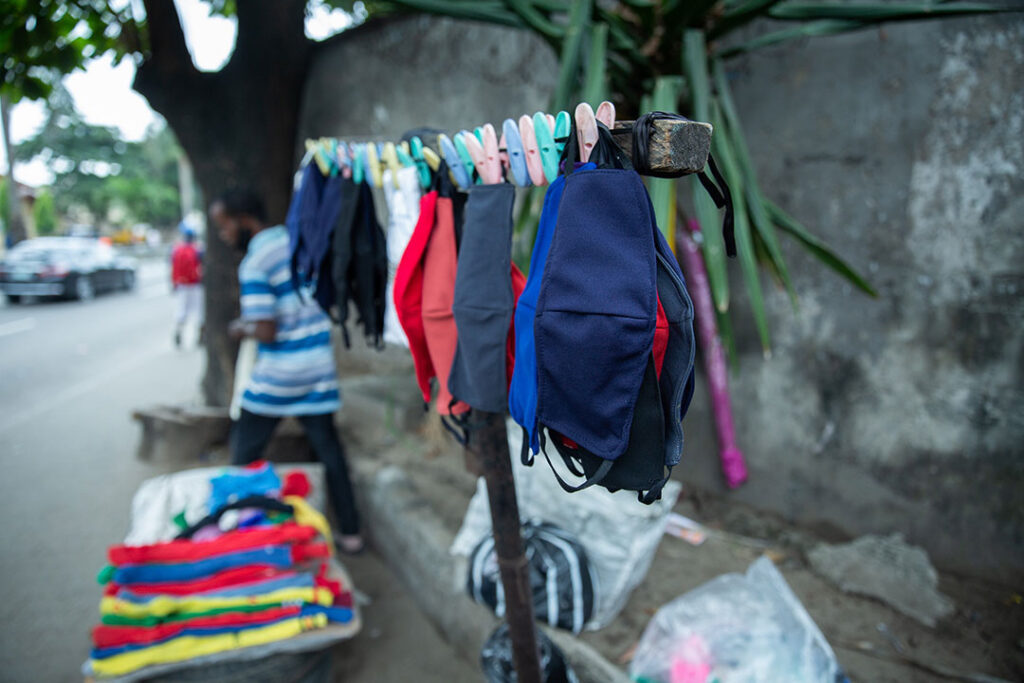ADF STAFF
As COVID-19 continues to sweep the globe, Nigerian health officials have launched a new weapon in their battle for the truth: HealthBuddy, a chatbot that can answer people’s questions via cellphone.
With more than 67,500 cases and 1,130 deaths as of the end of November, Nigeria has West Africa’s largest COVID-19 footprint. Nigerian leaders lifted a two-month lockdown in May and reopened the country’s international airport at the end of August. Complicating matters, mask orders are being widely ignored in Lagos and other large cities.
When COVID-19 arrived in Nigeria earlier this year, it came with an outbreak of misinformation that helped spread the infection across the country, despite official attempts to stop transmission through stay-at-home orders and mask mandates.
“We have Nigerians who still don’t believe that COVID is big enough to disrupt their lives,” Dr. Chima Okona, executive secretary of the Christian Medical and Dental Association of Nigeria, told Nigeria-based Plus TV Africa.
Rumors include claims that COVID-19 is a hoax, that Nigerians are immune to COVID-19 and that it can be cured with home remedies. In many cases, rumors that begin on social media find their way into newspapers and broadcasts, allowing the false information to proliferate.
That’s where the new chatbot comes in. The technology is available through Short Message Service (SMS) texts, meaning anyone with a cellphone can access it without internet access.
In a statement announcing the chatbot, Nigeria Centre for Disease Control officials said the new technology will help people get “validated, vetted, and accurate information about COVID-19 and the government’s efforts to control the pandemic.”
The chatbot’s strength is providing quick access to information when people want it – and to vet rumors in real-time, said Tanya Accone, UNICEF’s senior advisor on innovation.
“Through the chatbot, users can ask their own questions to access relevant information about the pandemic that they are interested in,” Accone told ADF. “Users can report rumors, which are fact-checked against the latest COVID-19 research.”
The chatbot relies on U-report, a social messaging tool that lets citizens collect data and report issues to officials. Through U-report, the chatbot also is available via WhatsApp and Facebook Messenger.
The chatbot joins several similar technologies aimed at correcting false information about COVID-19. Africa Check, the continent’s first fact-checking organization, launched its own chatbot named Kweli earlier this year via WhatsApp through which people can send information to be verified or corrected.
As countries around the world face increasing COVID-19 infections — potentially made worse by holiday celebrations between now and New Year’s Day — Nigerian health officials hope the new chatbot will help people behave responsibly.
“It allows people to get rapid information, rapid responses,” Okona said. He also sees the chatbot as an important tool for encouraging people to accept a COVID-19 vaccine when it arrives.
He remains concerned about the chatbot’s ability to overcome false information, particularly in rural areas where rumors often get the strongest foothold.
“They have to believe it is of value to them, which is a fundamental problem,” Okona said of rural residents. “COVID is being seen by more than half of Nigerians today as not bigger than malaria or typhoid.”
The chatbot can be accessed for free across all networks via SMS by sending the word “coronavirus” to the short code 24453.

